29 July 2020
CHALLENGE | RESPONSE | RESULTS
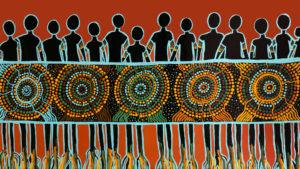
“Sharing the knowledge for caring for our Land” © Emma Burchill
The challenge
Empowering Indigenous people to lead ‘Our Knowledge Our Way’ in land and sea management.
Indigenous Australians rights of ownership and management have been recognised over nearly half of Australia and their knowledge systems connect them to their Country and cultures. As significant landowners, managers and custodians, Indigenous peoples are applying their knowledge s in caring for Country, generating many benefits. Indigenous peoples are learning from each about how to build on these successes. Researchers and, policy makers tasked with solving Australia’s complex environmental challenges are noticing many beneficial outcomes from Indigenous peoples applying their knowledge in management and seeking ways to grow these positive impacts.
However, there are many challenges for both Indigenous peoples and their partners in working with Indigenous knowledge—misappropriation and misuse of knowledge is common. Too often Indigenous knowledge has been commercially exploited without benefits flowing to communities, used without consent and in ways that are considered harmful by Traditional Custodians. Examples of good, Indigenous-led practices for strengthening and sharing knowledge are urgently needed.
The Our Knowledge Our Way in caring for Country Best Practice Guidelines, gives a voice to Indigenous land and sea managers who have found good ways to strengthen their knowledge and build partnerships for knowledge sharing in caring for Country.
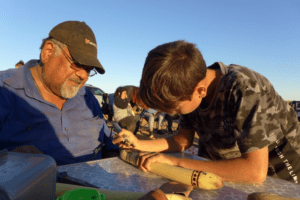
Case Study: Language and land: Arabana on-Country language camps (SA) highlights the activities of the Mobile Language Team, which has supported 20+ Aboriginal language groups through activities such as on-Country language camps, co-curricular language programs, videography and training for medical students. Here an Arabana camp leader shows a young Arabana boy how to decorate clapsticks. Photo: Mobile Language Team.
Our response
To support a step change in learning, by both Indigenous people and their partners, about best practice ways of working with Indigenous knowledge to look after land and sea Country.
In partnership with the North Australian Indigenous Land and Sea Management Alliance (NAILSMA), and with support from the Australian Committee of the IUCN, we answered a call from the Indigenous-majority Project Steering Group to develop a set of Best Practice Guidelines for working with Indigenous knowledge in land and sea management that would:
The Best Practice Guidelines are Indigenous-led, based on an open, transparent process established by the Project Steering Group of calling for Indigenous Peoples to submit case studies that demonstrate best practice in working with Indigenous knowledge. Indigenous leadership of the Guidelines occurred through:
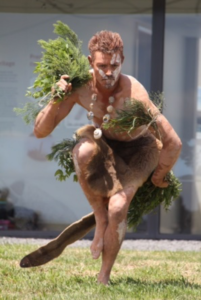
Case Study: Tebrakunna and Melythina Tiakana Warrana Aboriginal Corporation (Tas) showcases a successful partnership between the Tebrakunna and Melythina Tiakana Warrana Aboriginal Corporation and the Woolnorth Windfarm Group in establishing the Tebrakunna Visitor Centre, illustrating several principles critical in establishing a successful partnership. Here Tasmanian Aboriginal dancer Jarrod Hughes dances at Mannalargenna Day, 2019. Photo: MJ Anders.
The results
Over 100 Indigenous individuals and organisations, including partners, co-authors, case-study providers and reviewers, contribute to the development of the Best Practice Guidelines.
The Our Knowledge Our Way Guidelines showcases innovative ways in which Indigenous people are working with, and strengthening, their knowledge to build sustainable futures through their land and sea Country.
The Guidelines are based on 23 Australian case studies, submitted by Indigenous people and their representative bodies, that show how Our Knowledge Our Way in caring for Country can be supported through:
Indigenous knowledge is so important to fixing some of the issues that we see in in modern Australia. We know this Country, we speak this Country, we sing this Country, we dance it, and it’s a key part of who we are. And in their relationship with Country, Indigenous people are best placed to give advice because having that value of Country and water and the knowledge that comes with that – and the laws that protect that – is key to the way we fix the problem.
– Brad Moggridge, Lead Author – Chapter 4.
These Guidelines are a key output from a project of the Australian Government’s National Environmental Science Program, Northern Australia Environmental Resources Hub, titled Knowledge Brokering for Indigenous Land Management.
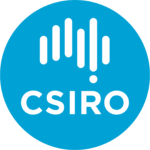 |
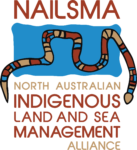 |
 |
Q&A from Our Knowledge Our Way Guidelines launch
Want to know more about the Resilient Landscapes Hub's activities and our research into practical solutions to environmental problems? Stay informed about activities, research, publications, events and more through the Hub newsletter.
"*" indicates required fields